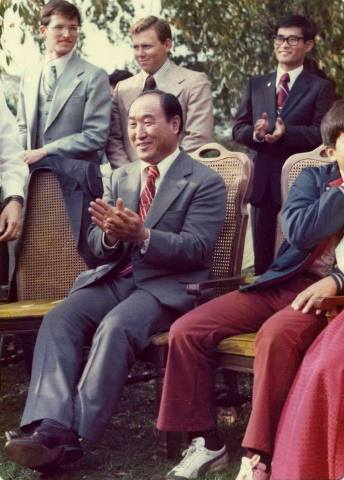![]()
The Words of the Salonen Family
|
|
The Words of the Salonen Family |

Many Vietnamese told me they found hope in South Korea's miraculous pattern of development, in the face of continued threats of aggression from the communist regime in the North.
The source of that achievement was planning and dedicated work: the prerequisites of a modern industrial society (e.g. electric power, transportation) were developed, growth rates in real terms expanded to nearly 16% in 1969, exports increased 20-fold and per capita income doubled since 1962.
William P. Bundy, a former Johnson administration official, gave high marks to the Korean "economic miracle", as summarized in the New York Times: "The Korean economic boom, referred to as the 'miracle on the Han' by some, is not a miracle, but a logically predictable outcome of realistic planning and hard work and constructive channeling of national assets."
My visit to Seoul (April 11--16) was hosted by the International Federation for Victory over Communism (IFVC), the same group whose Japanese branch has been so active in mobilizing public against the communist challenge in Asia.
During my visit, Korea was in the midst of her presidential election, with much debate and controversy between the two main candidates, the incumbent President Park Chung Hee of the Democratic Republican Party, and Kim Dae Jung, of the New Democratic Party. A key issue was South Korean policy relating to the communist regime in the North, which has unswervingly avowed its intentions to bring "unification" to the peninsula by any means, including military force.
Although both parties and candidates are considered solidly anti-communist, Park has always advocated a very strong stand and an aggressive economic challenge, to bring peaceful unification through the superiority of the democratic system. It can be safely concluded that Park's landslide victory indicates that the Korean people still remember the devastation and suffering which accompanied the last attempt by their estranged "brethren from the North" to unify the land.
I visited the Freedom Center in Seoul, a memorial to all those who struggled against communism, which serves as headquarters of the World Anti-Communist League (WACL). Acting Secretary General Shin Hyun Joon discussed mans of the WACL for this summer's conference in Manila. Last year, in Kyoto, our FLF affiliated with the world Youth Anti-Communist League, (WYACL) and we plan to attend again this year, if the financial means are found.
A strong propaganda attack has been launched against the U.S. commitment to defend the freedom of South Korea by North Korean embassies in Latin America, which flood our country with expensive high-grade propaganda by mail. This coincides with efforts in America of several pro-communist groups, notably the Black Panther Party and the "American-Korean Friendship and Information Center". In light of this I was interested in contacting the relevant private groups and government offices that could help us combat this ideological assault.
At the Ministry of Information, they explained that their material sought to emphasize the positive aspects of the life in the South, rather than to contrast with the hardships of life in the North. However, this leaves them on the defensive regarding imperfections of the developing democracy in the South, while never really focusing world public opinion on the Stalinist nature of the dictatorship in the North. I emphasized to them the need to pose a realistic choice to the American people: (1) to actively support the efforts of a courageous people in the South in becoming a self-sufficient and contributing member of the free world community, or (2) abandoning them, to give de facto support to the inhumane communist junta in the North.
From recent defectors and from contacts in "third countries" it is known that the entire population of North Korea mobilized for war. In order to qualify for higher education a young woman or man must only attend the necessary party indoctrination classes, but also undergo over 5 hours of military per week, plus summer training camps, etc.
If only these details and more were known in South Korea and elsewhere in the free world:
The need for free world societies to intensify their information campaign was made vividly clear to me while I was in Seoul. The university students were staging what has become their annual spring demonstration against the government, in this case against impending military training. I wonder how many of them would be willing to trade places with their counterparts in the North, if the 'acts were really made clear to them?
In their uninformed idealism, they may inadvertently bring on the opposite of the freedom they desire, and WE WOULD HAVE TO HOLD OURSELVES EQUALLY ACCOUNTABLE WITH THEM FOR THAT TRAGEDY.
It can never be the function of government in a free society to be the source of information and education -- the responsibility of that role must be borne by private groups, especially the media.
Through the Moonwha Broadcasting Co., three student leaders from universities in Seoul and I made a short television program. The discussion covered student movements and the need for educational programs on communism.
It was during this trip to Asia and my discussions with student groups in particular, that I recognized our greatest struggle. The communists work on an international scale: with skillful propaganda they have been deliberately misleading as to their true intentions and the political realities in various parts of the world, isolating one from the other. If our society would effectively educate its people, then the communist lure would stand out as the hoax that it really is. Since our government does not so educate, we as individuals and private groups must coordinate our activities and keep each other informed. This FLF shall do.